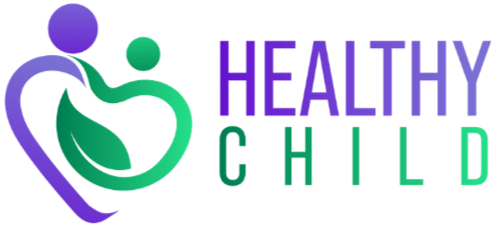ADHD Parenting so Your Child Will Thrive

Attention Deficit Disorder ADD or Attention Deficit Hyperactive Disorder ADHD is a condition frequently diagnosed in children due to a wide range of problems with inattention and impulsiveness. Around 11% of children in the US are diagnosed with either ADD or ADHD, which mostly relates to the delayed development of self-management skills. Let’s explore the most effective ADHD parenting that will help children thrive.
All young children are naturally active, impulsive, easily distracted and can be uncooperative. So how do you know if your child has a problem?
ADHD might be considered if the behaviors:
- negatively impact several areas of your child’s life in a significant way,
- are more extensive and extreme from other kids’ typical behavior at the same age, AND
- this pattern continues for more than 6 months.
If your child is distractible or impulsive like most kids his age and he is doing fine in all areas of life, an ADHD diagnosis might be inappropriate. On the other hand, if these issues are pervasive and persistent and they interfere with your child’s life then you are likely desiring to get some help.
What does it mean for your child to have an ADHD diagnosis?
ADHD is a neurodevelopmental disorder that primarily affects executive function of the brain – a term used to describe the mental capacity to manage one’s life. Executive function resides mostly in the frontal part of the brain and is in continual development throughout childhood and beyond. Self-management skills include impulse control, planning, problem-solving, time management, coordination, attention, following directions, staying on track and managing emotions.
All children are on an ongoing path to develop executive functioning and to grow up to be able to manage themselves in all aspects of their lives. New brain science suggests that development of executive functioning begins in infancy and may take up to around 30 years to be fully developed.
Brain science shows that executive functioning is delayed or inefficient in children with ADHD, compared to their peers of the same age. However, an area of the brain that does mature faster than usual in kids with ADHD is the motor cortex. This could explain the restlessness and the strong desire that ADHD kids have to move around like they love to do.
What causes ADHD?
Underlying physiological imbalances are commonly overlooked causes of children’s behavior and developmental problems. These imbalances can be complex and difficult to detect and can certainly affect your child in both subtle and serious ways.
Many children with ADHD have one or more other conditions for a variety of reasons. These may include learning disabilities, tic disorders, anxiety, depression, sleep problems, allergies and severe behavior issues.
There are underlying physiological issues that can affect the chemistry of the brain. There are many things that affect the brain, but nutrition and gut health are vitally important.
If you are parenting a child with ADHD or any of these other conditions, here are some of the underlying physical issues you might consider:
- Gut microbiome dysbiosis
- neurotransmitter imbalances
- metal and chemical toxicity
- impaired detoxification
- nutritional deficiencies and imbalances
- allergies and immune dysfunction
- food reactions and sensitivities
This article provides more info about underlying issues: https://healthychild.com/physical-imbalances-affecting-childs-brain-and-behavior/
Are ADHD medications necessary?
ADHD medications might be helpful for some children, but there are potential, dangerous side effects that can make the risks outweigh the benefits. The most common side effects of medications are sleep disturbances and decreased appetite, both known to worsen the symptoms of ADHD. 20% to 35% of people with ADHD do not respond to medication. Most importantly, medications mask the underlying imbalances and causes that need to be addressed.
The good news is that there is a path to wellness and recovery where medications may not be necessary, or only used as a last resort. The imbalances that can lead to ADHD can be treated so your child can function better with a healthy brain and body.
ADHD parenting so your child will thrive
Kids do well if they can. The important thing to recognize is that children with ADHD are challenging – NOT because they are manipulative, willfully defiant or trying to make your life difficult. They are challenging because they are lacking the skills needed to do well and they also may be dealing with specific imbalances in their body/brain. Many kids with ADHD have unique gifts and strengths, and with the right resources, individualized attention, and getting the body back into balance, they have the capability to do really well and thrive.
Children’s brains are continually reorganizing, and science shows the brain has the capability to rewire itself. There is no question that parenting affects brain development. As their brains are continually developing, all children need help in managing their lives, but kids with ADHD need extra help.
The great news is that kids can recover and thrive when the underlying physical issues are addressed and they are supported in emotional processing and self-management.


My son was recently diagnosed with ADHD. Seeing him thrive to be the best is my life’s goal. Thank you for this very good read. Cheers.